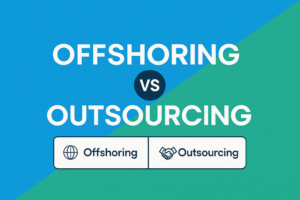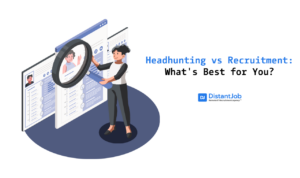Are you gearing up for a software engineering interview, either as an interviewer or a job seeker? Success hinges on more than just technical know-how; it’s about demonstrating problem-solving skills and a fit for the company culture.
Make sure you’re prepared to ask and answer deep, insightful questions that truly showcase technical prowess and collaborative potential. This focused approach will help differentiate exceptional candidates from the rest, ensuring a match that benefits both the company and the candidate.
Let’s explore the top 20 crucial questions and answers designed to identify exceptional mid-level and senior software engineers. This interview will equip you with the insights needed to discern standout candidates effectively.
1. Can you describe your experience with leading technical projects, especially in environments that require rapid development and deployment?
This question assesses leadership skills and the ability to handle fast-paced project cycles.
A: “In my last role at a startup, I led the development of a real-time analytics platform, which involved rapid prototyping and frequent iterations. We used Agile methodologies, focusing on quick sprints and daily stand-ups to adapt to changes quickly and efficiently.”
2. How do you approach mentoring junior team members, and can you give an example of how you’ve successfully helped develop a colleague’s skills?
This is crucial for roles that may involve team leadership and talent development.
A: “I regularly conducted code reviews and pair programming sessions to mentor juniors. For example, I helped a junior developer improve their coding practices, which enhanced their debugging skills and reduced error rates in their work by 30%.”
3. What strategies do you use for maintaining high-quality code in a fast-paced environment? How do you ensure that code reviews are thorough yet efficient?
Tests their ability to manage code quality and peer review processes under pressure.
A: “To maintain high-quality code during crunch times, I implement automated testing and continuous integration tools. This ensures that every piece of code is tested before it is merged, maintaining code quality without slowing down the development.”
4. Could you describe how you designed and implemented a complex system or architecture in a previous role?
Aims to understand their architectural expertise and problem-solving approach.
A: “I designed a microservices architecture for a complex inventory management system that improved system scalability and performance. This involved defining clear service boundaries and implementing API gateways for efficient communication between services.”
5. What’s your experience with handling legacy code, and have you been involved in any significant refactors or directional shifts in technology at your previous companies?
A: “At my previous job, I led a major refactor of a decade-old inventory system by incrementing updates, improving system performance by 40% without disrupting the existing user base.”
6. What type of project management methodologies are you familiar with? How do you fit into an Agile/Scrum environment?
Knowledge of Agile, Scrum, or other methodologies indicates how well a candidate can integrate into the team.
Evaluates their capability to work with existing codebases and adapt to evolving business needs.
7. How do you build and maintain professional relationships in the workplace, especially in environments that may require collaboration across different teams?
Looks at interpersonal skills and their approach to collaboration and communication.
A: “I believe in open communication and regular feedback to build trust and transparency. In my last role, I initiated bi-weekly cross-departmental meetings that increased project visibility and improved collaborative efforts.”
8. Where do you see your career heading in the next few years, and how does this position align with your goals?
Assesses candidate’s career aspirations and how they align with the company’s growth path.
A: “I aim to move into a lead role where I can drive key projects and mentor a team. This position aligns well with that goal as it offers opportunities to lead on critical projects and influence product direction.”
9. Can you identify any areas where you feel you could improve? What excites you most about your work?
Gauges self-awareness and passion for their work, crucial for long-term engagement and success.
A: “I’m currently working to improve my cloud architecture skills. I am most excited by building scalable systems that directly impact user experiences, which drives my interest in cloud solutions.”
10. What is your preferred communication style, and how do you like to receive feedback and recognition?
Understanding their communication preferences helps predict how well they’ll integrate into the team.
A: “I prefer clear, direct communication and timely constructive feedback. Recognizing achievements in team meetings also motivates me and acknowledges our hard work.”
11. How do you manage your workload during crunch times, including any after-hours or weekend work?
This question checks their time management skills and ability to handle stress.
A: During crunch times, I prioritize tasks based on impact and deadlines. I also ensure that workload challenges are communicated early to manage expectations and adjust project timelines if necessary.
12. Have you worked on remote teams, and what practices do you find most effective for managing projects across different time zones?
Relevant for roles that may involve remote work or international collaboration.
A: “I’ve managed remote teams across three time zones. Using asynchronous communication tools and scheduling regular check-ins have been effective in keeping projects on track.”
13. What technologies are you currently learning, and how do you keep your skills updated with the latest in software development?
Tests their commitment to continuous learning, a must in the fast-evolving tech landscape.
A: “I regularly attend workshops and webinars, and currently, I’m enhancing my skills in AI development through an online certification course.”
14. Describe a time when you had to implement a feature or fix a bug without complete data. How did you proceed?
Assesses problem-solving skills and ability to operate with limited information.
A: “When data is incomplete, I start by defining assumptions based on available data, discuss these with my team or stakeholders, and adjust as more information becomes available.”
15. What is your approach to integrating third-party services and libraries into your projects?
Look at their technical ability to handle external integrations, which is crucial for modern development workflows.
A: “In integrating third-party services, I evaluate several options based on performance, security, and compatibility with our stack before making a decision. For instance, integrating Stripe significantly streamlined our payment processes.”
16. How do you prioritize technical debt against new feature development?
Understanding their approach to balancing maintenance with innovation can indicate their fit for the company’s development culture.
A: “I assess technical debt by its impact on productivity and system risk. For crucial projects, I advocate for allocating sprints to address significant debts while balancing new feature development.”
17. With What Methodology Have You Worked With?
This depends on whether your company follows a determined project methodology. Many modern companies choose the Agile Methodology mainly because of its efficiency in managing workloads, due dates, design steps, and debugging processes, among other phases of a project. If your company works with the Scrum methodology, on interviews, you should make sure software engineering candidates know what Scrum or Agile is.
18. Are you comfortable working in a fast-paced, changing environment?
This question helps to identify if the candidate has worked in environments that evolve dynamically. And if they accommodate and enjoy that experience. Many software engineers are used to a predictable environment that is typical of big companies. And they rely heavily on having a team where the responsibilities are limited for each member. This question is ideal when you need a tech lead or when hiring for a small/ medium/ startup company.
19. How do you feel about code reviews?
In the software development process, code reviews are a must. This type of question lets you get a hint on how a developer might take feedback and how he is willing to help other team members. Also, to know more about the candidate’s knowledge and experience. And if they use testing methodologies, frameworks, or tools.
20. How do you maintain a work/life balance?
This question might be a small trick to see how a candidate prioritizes. You are not trying to find out how they handle their work and life daily. What you want to know is what’s important to them and how they act on that. A candidate who finishes tasks on time and overall works hard but also makes time for themselves, their hobbies, family, and friends is someone who understands the importance of work/life balance and how to take advantage of time.
Now you Know
Recruitment is a long and boring process – if you do it wrong but with the right interview questions, you’re set up for success.
Making a great hire is mainly about asking the right interview questions to your new software developer. And of being sure that a software engineer is:
- A good culture fit
- Fantastic problem solver
- Does what they preach (technically speaking)
- Excellent business communication and presentation skills
Hopefully, this general list of interview questions can help you select software engineer candidates carefully. Additionally, there are more specific questions you need to consider, based on the type of culture your company has, the tech stack, and the programming languages you use. At DistantJob, we are experts in the art of remote tech recruiting. Our goal is that all companies have the best tech talent that matches their culture and professional requirements. Let us help you find the best software developer in just two weeks!





